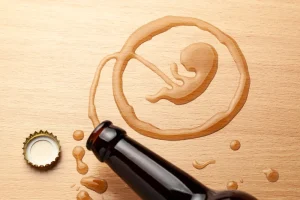Differential Diagnosis of Ketoacidosis in Hyperglycemic Alcoholic Diabetic Patient: Role of Insulin PMC
September 27, 2021

Treatments for acidosis depend primarily on type and involve addressing the underlying cause of the condition. Medications, medical procedures, and lifestyle factors play a role in how a healthcare provider recommends managing the conditions. This article discusses various types of acidosis and its causes, symptoms, and complications. Maintaining a healthy acidic balance is crucial for homeostasis—the acid-base balance your body needs for optimal health and function. However, when vomiting occurs, this life threatening condition can develop in a few hours.
Probiotic supplement caused man’s fatal infection in rare case
- If severe hypokalemia is present dextrose containing fluids can be held until potassium levels are normalized.
- This activity illustrates the evaluation and treatment of alcoholic ketoacidosis and explains the role of the interprofessional team in managing patients with this condition.
- If you are diagnosed with alcoholic ketoacidosis, you’ll typically require hospitalization for close monitoring and specialized care.
- If untreated, severe cases of acidosis can cause shock or become fatal.
- Ketones are a type of acid that form when the body breaks down fat for energy.
If you have diabetes, you’ve probably heard about diabetic ketoacidosis, or DKA, from your doctor. Unlike ketosis, which is a harmless state of fat-burning resulting from a low-carb diet, diabetic ketoacidosis is a medical emergency. Learn more about this condition and the steps you can take to avoid it. During DKA, the lack of insulin results in the liver using fat for fuel instead, which produces acids called ketones. When the body produces too many ketones too fast, they can build up to dangerous levels. It occurs when there is an insufficient level of insulin to allow the body to use sugar as energy.
The syndrome of alcoholic ketoacidosis
Most cases are reversible, but severe and untreated acidosis can become fatal. If you have diabetes or you’re at risk of diabetes, learn the warning signs of diabetic ketoacidosis and when to seek emergency care. Diabetes-related ketoacidosis (DKA) happens when your blood turns acidic because there are too many ketones in your dka and alcohol blood due to a lack of insulin. Diabetes-related ketoacidosis is life-threatening and requires immediate treatment. A high number of ketones causes your blood to become acidic (your blood pH is too low) and you experience dehydration. Diabetes-related ketoacidosis (DKA) happens when you have a lack of insulin in your body.
- Next, 11 underwent halogenation and HCl elimination readily generating pyridazinone (12) in 79%47.
- Catecholamines, particularly epinephrine, increase fatty acid release and enhance the rate of hepatic ketogenesis.
- The man had been discharged from the ICU after about a month in the hospital and was undergoing rehabilitation in the general ward while taking the probiotic.
- Moreover, the versatility of β-functionalized ketones as building blocks in organic synthesis was highlighted by a series of derivatization reactions (Fig. 3B).
Treatment and Management of Acidosis

Glucose comes from the food you eat, and insulin is produced by the pancreas. When you drink alcohol, your pancreas may stop producing insulin for a short time. Without insulin, your cells won’t be able to use the glucose you consume for energy. To emphasize the synthetic utility of this method, we conducted scale-up reactions with representative substrates, which basically maintained their performance (4p, 5l, and 6g) (Fig. 3A).
- When severe, diet-induced acidosis can affect bones and muscles and contribute to chronic kidney disease.
- On the other hand, only about 1 to 8 in 100 people who get DKA die from it.
- If the level is high (a chart on the packaging will advise on safe levels), head to your nearest emergency room.
- Various case reports have described incidents in which hospitalized patients ended up with bacteria in their blood after being given probiotics.
- Seeking help as soon as symptoms arise reduces your chances of serious complications.
Alcoholic Ketoacidosis: Warning Signs and Treatments
Deterrence and Patient Education

Diagnosis of Alcoholic Ketoacidosis




